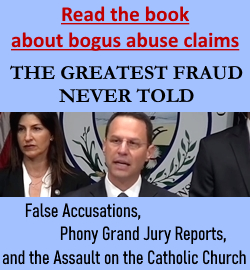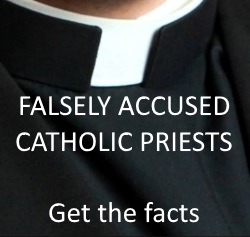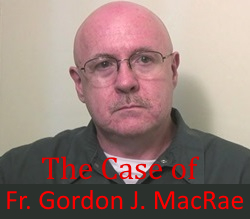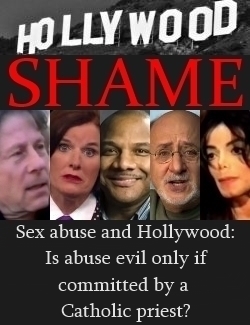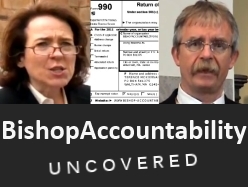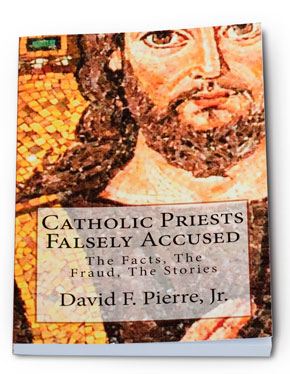When reporting stories concerning the Catholic Church, the New York Times' Laurie Goodstein has had a very troublesome track record with the facts. (For starters: 1, 2.)
Unfortunately, Goodstein's record only gets worse after another faulty and misleading front-page article (Sat., 7/23/11).
In attempting to trumpet the case for "female priests" in the Catholic Church, Goodstein and the Times profile a small number of dissident and ignorant Catholics who seek "change" in the 2,000-year-old institution. And in doing so, Goodstein misleads her readers in a number of ways:
1. Goodstein gives false the impression that the loopy Fr. Roy Bourgeois, a well-known dissenter and advocate for "womenpriests," has yet to be excommunicated from the Catholic Church. In fact, Bourgeois openly acknowledged to the Catholic News Service in 2009 that he had already been excommunicated on November 24, 2008, and that his order confirmed his excommunication. (Even Laurie's friends at the Boston Globe have recognized this.)
2. Goodstein reports that "Church experts" (who remain unidentified, of course) think it is "surprising" that 157 priests signed a statement in support of the wacky Fr. Bourgeois. Well, considering the fact that there are 410,593 Catholic priests in the world, 157 is not very impressive. (If my math is correct, that is .00038 (or 0.038%) of all Catholic priests.)
3. Goodstein briefly mentions Pope John Paul II's 1994 apostolic letter, Ordinatio Sacerdotalis, which further declares the impossibility of women in the priesthood. However, Goodstein misleads her audience by failing to mention that Holy Orders, by which men are ordained as priests, is a sacrament in the Catholic Church. Many Protestant denominations and other "churches" do not recognize this, and this is an important distinction. The issue of "female priests" will never be "up for a vote" when "another Pope" comes along. It just won't happen, no matter how many articles Goodstein writes. (By the way, Paul reminds readers (in 1 Cor 12, Rom 12:4-8) that the priesthood is about role in the Church; it is not about "power" or "sexism," as Goodstein and advocates of "womenpriests" often state.)
4. Goodstein quotes an Australian priest to imply that "the shortage of priests" necessitates that women fill the role. In fact, while it is true that the numbers of priests in North America, Europe, and Oceania have been decreasing, the number of Catholic priests worldwide has been steadily increasing. There were 5,000 more Catholic priests in the world in 2009 than there were in 1999, according to a recent Vatican report.
The bottom line: These women who dress up as Catholic priests are as genuine as children who dress up on Halloween claiming they are Superman. This is a contingent that is small, geriatric, and schismatic. The Times is pretending to trumpet it as being larger and more influential than it is.
A far more interesting – and far more useful – article from Goodstein would have been relaying how these dopey advocates of "womenpriests" became so ignorant and dissident in the first place.
